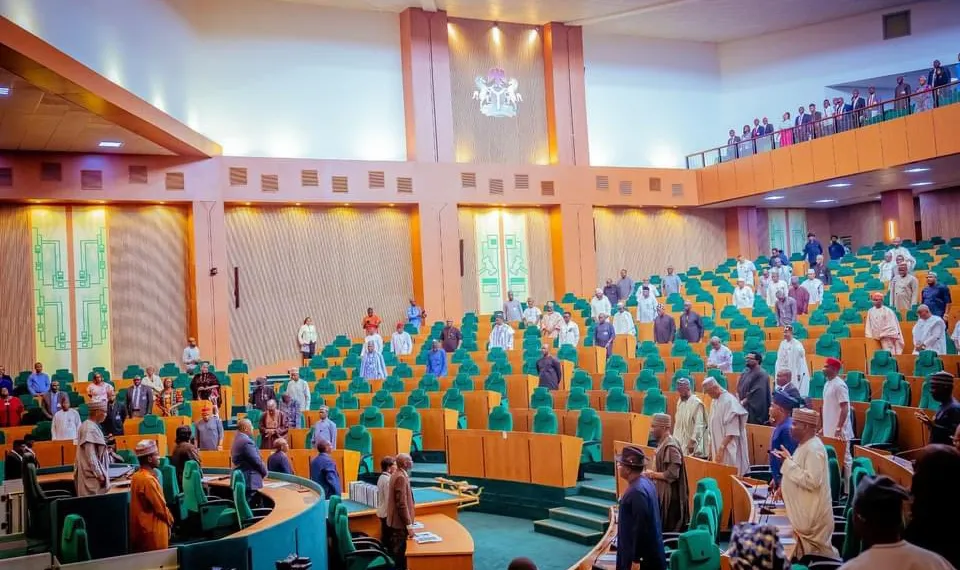
Source: Sharon Eboesomi

House of Reps (PHOTO CREDIT: @HouseNGR)
The House of Representatives has advanced a bill proposing the establishment of a National Hospital for Women in Ideato, Imo State — a move aimed at tackling Nigeria’s persistent maternal and reproductive health challenges.
The bill, sponsored by Hon. Ikenga Ugochinyere (PDP, Imo), passed second reading on the House floor and outlines plans for a specialized tertiary institution focused on reproductive care, maternal health, and the treatment and prevention of obstetric fistula — a preventable yet devastating condition still affecting thousands of women in Nigeria.
Leading the debate, Ugochinyere highlighted glaring gaps in Nigeria’s healthcare infrastructure, especially in providing adequate maternal services. Citing data from the Federal Ministry of Health, he noted that tens of thousands of women, particularly in rural and marginalised areas, continue to suffer from obstetric fistula due to poor access to quality healthcare.
“The National Hospital for Women, Ideato, will serve as a dedicated national centre of excellence to close this gap, focusing on treatment, prevention, education, and sensitisation,” he said.
According to the United Nations Population Fund (UNFPA), Nigeria accounts for an estimated 12,000 new cases of obstetric fistula each year — one of the highest globally.
The proposed hospital is expected to offer:
The proposed hospital is expected to offer:
Ugochinyere stressed that the facility would not only improve health outcomes but could also boost medical tourism by attracting patients from across Nigeria and neighboring countries.
Obstetric fistula is a severe childbirth injury where a hole develops between the birth canal and the bladder or rectum, usually due to prolonged or obstructed labour without prompt medical care. The condition causes chronic incontinence, and its social stigma often leads to abandonment, isolation, and psychological trauma.
Despite the Nigerian government launching a National Strategic Framework in 2017 to eliminate obstetric fistula by 2030, the effort has struggled due to poor funding and implementation.
Existing treatment centers in Katsina, Bauchi, and Kwara are overwhelmed, and no federal hospital currently exists solely for women’s reproductive health and fistula treatment.
Having cleared its second reading, the bill will move to a public hearing, where health professionals, NGOs, and civil society organisations are expected to contribute insights before it proceeds to the third and final reading.
If passed into law, the National Hospital for Women in Ideato could become a turning point in Nigeria’s fight against maternal health inequities and a critical investment in the health and dignity of Nigerian women.